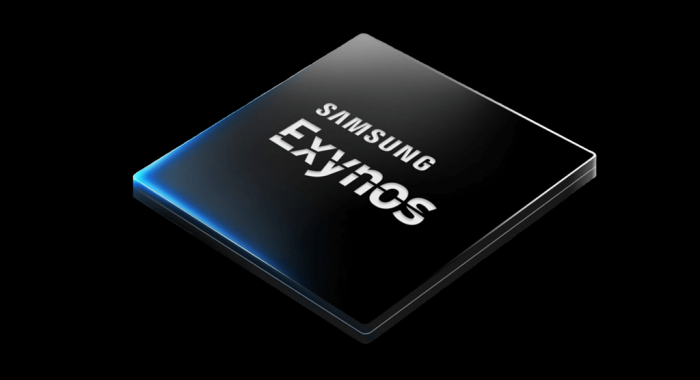Korean chipmakers
Samsung, AMD extend partnership for next-generation graphic chips
They are broadening the scope of their mobile graphics collaboration to offer a console-level game experience on smartphones
By Apr 06, 2023 (Gmt+09:00)
3
Min read
Most Read
LG Chem to sell water filter business to Glenwood PE for $692 million


KT&G eyes overseas M&A after rejecting activist fund's offer


Kyobo Life poised to buy Japan’s SBI Group-owned savings bank


StockX in merger talks with Naver’s online reseller Kream


Meritz backs half of ex-manager’s $210 mn hedge fund



Samsung Electronics Co. said on Thursday it is extending its strategic partnership with Advanced Micro Devices Inc. to jointly develop next-generation application processor chips.
The two companies signed a multi-year partnership extension agreement to bring the US chip designer’s multiple generations of high-performance, ultra-low-power Radeon graphics functions to an expanded portfolio of Samsung’s Exynos application processors.
The partnership will help Samsung, the world’s largest chipmaker and smartphone manufacturer, offer a console-level gaming experience as well as optimized power consumption on smartphones.
A mobile application processor, called the brain of a smartphone, is a system-on-chip designed to support applications running in a mobile operating system environment.
The Korean tech giant generates the bulk of its memory business profit from making basic chips and has been beefing up the development of logic chips such as mobile processors, image sensors and automotive chips to diversify its business channels.

“Together with AMD, Samsung has been revolutionizing mobile graphics, including our recent collaboration that brought ray tracing capability to mobile processors for the first time in the industry,” said Lee Seog-jun, executive vice president of Application Processor Development at Samsung.
The two companies first announced their partnership to license AMD RDNA graphics architecture in 2019, leading to the co-development of Samsung’s Xclipse, a mobile graphics processing unit based on AMD’s high-performance RDNA 2 architecture, in 2022.
Xclipse was the industry’s first mobile GPU with a hardware-accelerated ray tracing feature, which simulates how real-world light physically behaves inside the game, and variable rate shading, previously available only on PCs, laptops and consoles to optimize GPU workload.
The Xclipse GPU was installed on Samsung’s Exynos 2200 mobile processor.
“We are excited Samsung selected our high-performance Radeon graphics to advance the next generation of Samsung Exynos solutions,” said David Wang, senior vice president of the Radeon Technologies Group at AMD.

MOBILE AP MARKET GROWING AT FAST CLIP
Samsung’s flagship Exynos mobile chips power its Galaxy series of smartphones and mobile phones of its rivals such as China’s Vivo Communications Technology Co.
According to Samjong KPMG’s “Top 10 Trends in the 2023 Gaming Industry” research note, the global game industry is forecast to grow to $257.7 billion by 2024 from $219.7 billion in 2021.
Of the entire gaming market in 2021, mobile games accounted for 45.6%, more than double console games’ 25.1% market share.
Samsung’s strengthened partnership with Nasdaq-listed AMD comes as the Korean company faces an uphill battle against rivals such as Qualcomm Inc. and MediaTek Co. of Taiwan.

Qualcomm, the dominant player in the premium mobile AP chip market, supplies its new Snapdragon 8 Gen 2 chip to Samsung to power its latest premium smartphone, the Galaxy S23 series.
Samsung is also doubling down on its efforts to develop next-generation AP chips exclusively used for its Galaxy line of smartphones.
Around the end of last year, Samsung’s LSI division, together with its MX division handling smartphones, set up the AP Solution Development Team to facilitate its R&D work on next-generation mobile AP chips.
Write to Jeong-Soo Hwang at hjs@hankyung.com
In-Soo Nam edited this article.
More to Read
-
 Korean chipmakersSamsung unveils Exynos Modem 5300 to rival Qualcomm, MediaTek
Korean chipmakersSamsung unveils Exynos Modem 5300 to rival Qualcomm, MediaTekMar 28, 2023 (Gmt+09:00)
1 Min read -
 Korean chipmakersSamsung’s new Exynos chipset enables short-range wireless connectivity
Korean chipmakersSamsung’s new Exynos chipset enables short-range wireless connectivityMar 21, 2023 (Gmt+09:00)
2 Min read -
 Korean chipmakersSamsung unveils industry’s first 12 nm DRAM, compatible with AMD
Korean chipmakersSamsung unveils industry’s first 12 nm DRAM, compatible with AMDDec 21, 2022 (Gmt+09:00)
2 Min read -
 Tech, Media & TelecomSamsung touts latest Exynos 2200 chip as mobile game changer
Tech, Media & TelecomSamsung touts latest Exynos 2200 chip as mobile game changerJan 18, 2022 (Gmt+09:00)
3 Min read
Comment 0
LOG IN


